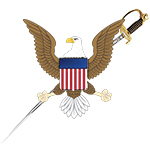The Verity Courier
Trump
By Ron Estes
25 May 2024
There is professional speculation that Donald Trump, as President, was an Agent of Influence of the Russian Government, and may still be.
An Agent of Influence is a person of political stature who uses his position to influence public opinion and foreign policy to produce results beneficial to the government who has compromised him. He does not act as the traditional spy gathering or stealing classified material and passing it clandestinely to a foreign intelligence service.
It is accepted as fact that the SVR, the current name for the Cold War KGB, acquired compromising film and recordings of Trump cavorting with prostitutes in a Moscow hotel room in 2013. The incident was reported in the Steele Dossier, but according to the BBC, the same information was also reported by "multiple intelligence sources" and "at least one East European intelligence service". They report that "compromising material on Mr. Trump" included "more than one tape, not just video, but audio as well, on more than one date, in more than one place, in both Moscow and St. Petersburg.”
The Guardian, the British global news organization that publishes investigative journalism and is known to receive information provided by British intelligence, quotes Kremlin documents it says were “leaked,” and seen by the Guardian. Those documents reveal that on 22 January 2016, Russian President Putin personally authorized an intelligence agency operation to support a ‘mentally unstable’ Donald Trump in the 2016 US presidential election during a
closed session of Russia’s national security council.The Russian president, his intelligence chiefs and senior ministers were all present. At the meeting it was agreed that a Trump White House would help secure Moscow’s strategic objectives, among them “social turmoil” in the U.S.
Russia’s three spy agencies were ordered to find practical ways to support Trump, in a decree appearing to bear Putin’s signature.”
The Guardian has shown the leaked documents to independent experts who say they appear to be genuine. Their overall tone and thrust is said to be consistent with Kremlin security thinking.
Following his election,Trump had 5 private meetings with the Russian President, Vladimir Putin, a former KGB colonel. Trump insisted that all translator notes of the meetings be destroyed. Thus, there is no written record of any of the meetings. It is unprecedented for a President of the United States to meet with a leader of a foreign nation, and have no record of the meeting. There was speculation in the U.S. intelligence community what President Trump was trying to hide by destroying all records of the meetings.
As a Russian Agent of Influence in a position of U.S. political leadership, one would expect that agent to be directed to formulate U.S. foreign policy to serve the interests of the nation controlling him. The question has been asked, did President Trump do so??
Moscow views the former Warsaw Pact Central/Eastern European countries who have joined NATO and the EU, as a security threat to Russian interests. Russian objectives in Europe have been to weaken NATO, cause disunity and confusion of purpose of the EU, and negatively influence the unity and economic significance of the G7 nations.
As President, Trump treated our European allies, the countries that we are most clearly sworn to defend with our own lives, more cavalierly than any President since World War II. Trump pulled the United States out of the Paris accord on climate change, and withdrew U.S. troops from Germany. Trump also withdrew the U.S.from the international agreement on Iran’s nuclear program, the JCPOA, which Europeans had been frantic to save. Across much of Europe, anti-Americanism rose dramatically during the Trump years in office. There has been much improvement since.
It was often said during that period that if one stood quietly on a Berlin street, you could hear Putin applauding in Moscow.
Before his inauguration, Donald Trump shook the foundations of NATO more than any of his predecessors with his argument that NATO was “obsolete” because it was not doing enough to fight terrorists. That accusation caused puzzlement in European capitals, given NATO’s fifteen-year involvement in Afghanistan. Of even greater concern, however, was his apparent readiness to make conditional the holiest of holies, the US commitment under Article 5 of NATO’s founding treaty to come to the defense of any ally that comes under attack. Never before had any U.S. political figure gone so far as to call into question U.S. treaty obligations to its European allies, and to question the value of NATO itself. Senior administration officials tried to temper the anti-NATO statements.
Following his first NATO Leaders’ Meeting in Brussels, the doubts raised by the new President Trump about the U.S. commitment to its oldest military alliance, stunned NATO officials and required other administration officials to address concrete vows between the United States and European allies.
In the Middle East Trump’s support of Israeli violations of international law, being the first nation to recognize Jerusalem as the capital of Israel, alienated 1.9 billion Muslims and relinquished much U.S. stature and influence in the region, at the delight of Moscow.
According to the Washington Post, “The FBI faced a national security nightmare under Trump: It suspected the new President of the United States was, in some unknown way, in the sway of Russia. an agent of a foreign power in the White House? The number 2 man in FBI counter intelligence said at the time, “We still don’t know why the President kowtows to Vladimir Putin, broadcast Russian disinformation, and bent U. S. foreign policy to suit the Kremlin. Perhaps someday he will find out.
Ron Estes served 25 years as an Operations Officer in the CIA Clandestine Service.
